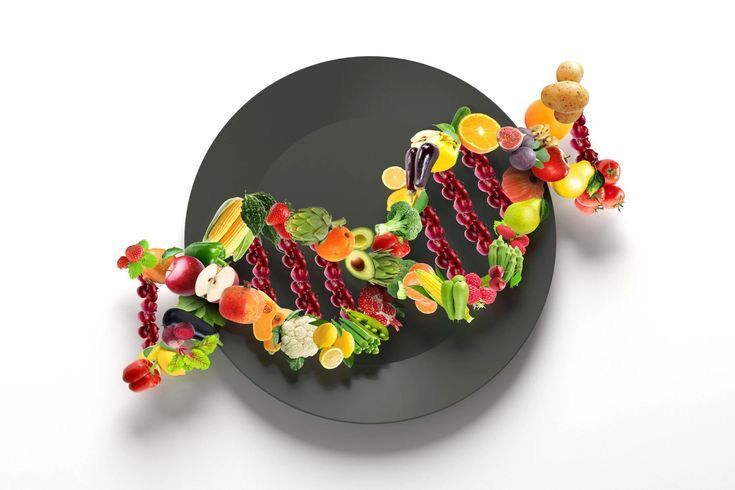Beyond the Genome of Nutrition: How Well Do You Know Your Gene & Gut?

How Food, Gut Health, and Genetics Intersect to Impact Cancer Risk
Introduction
The field of nutrigenomics has revolutionized our understanding of the intricate relationship between food, genetics, and health. By studying how genetic variations influence nutrient metabolism, researchers can develop personalized dietary recommendations that optimize health outcomes.
But what about the role of gut health and the microbiome in this equation? Emerging research suggests that these factors are just as crucial in shaping our cancer risk and overall well-being.
The Importance of Gut Health and the Microbiome
Your gut microbiome—a community of trillions of microorganisms residing in your digestive tract—plays a vital role in maintaining immune function, inflammation control, and nutrient metabolism. These microbes assist with:
✔️ Breaking down complex nutrients into simpler, usable compounds
✔️ Producing essential vitamins and hormones
✔️ Regulating the immune system
✔️ Strengthening the gut barrier to prevent disease
However, when the balance of these microbes is disrupted—a condition known as dysbiosis—it can contribute to chronic diseases, including cancer. Studies have linked gut microbiome imbalances to:
❌ Increased inflammation and oxidative stress
❌ Weakened immune defenses
❌ Altered nutrient metabolism
❌ Higher cancer susceptibility
The Role of Nutrigenomics in Cancer Prevention
Nutrigenomics examines how our genes influence the way we process nutrients. Certain genetic variations impact how efficiently the body metabolizes folate, vitamin D, and other key nutrients, which in turn affects DNA repair, immune function, and cancer risk.
🔬 Folate & DNA Repair
Folate plays a critical role in DNA synthesis and repair. Some individuals carry genetic variations that impair folate metabolism, potentially leading to DNA damage and increased cancer susceptibility. A higher folate intake may help offset these risks.
🌞 Vitamin D & Cancer Prevention
Vitamin D is crucial for immune function and cancer prevention, but genetic variations can reduce its metabolism. Ensuring optimal vitamin D levels through diet or supplementation can help counteract this genetic predisposition.
The Intersection of Gut Health, Microbiome, and Nutrigenomics
The gut microbiome significantly influences gene expression, nutrient metabolism, and cancer risk. It helps regulate:
✔️ Folate metabolism – Certain gut bacteria produce enzymes that enhance folate absorption.
✔️ Vitamin D processing – The microbiome aids in the conversion of vitamin D into its active form.
✔️ Inflammation control – Beneficial microbes help suppress chronic inflammation, a key driver of cancer.
By nurturing a healthy gut microbiome, we can positively influence gene-nutrient interactions and reduce cancer risk.
Dietary Strategies for Cancer Prevention
To support gut health, gene function, and overall cancer prevention, consider these science-backed dietary recommendations:
🥦 Eat a variety of whole, nutrient-dense foods—including fruits, vegetables, whole grains, and lean proteins.
🦠 Include fermented foods like yoghurt, kimchi, and sauerkraut to enhance gut microbiome diversity.
🌾 Prioritize fibre-rich foods—such as legumes and whole grains—to promote beneficial gut bacteria.
💡 Personalize your nutrition by consulting a registered dietitian or healthcare professional.
Future Directions in Research
While scientists have made groundbreaking discoveries in nutrigenomics and gut health, there’s still much to explore. Future research will focus on:
🔍 Identifying specific gene variants linked to nutrient metabolism and cancer risk.
🔍 Investigating how dietary interventions reshape the gut microbiome to prevent cancer.
🔍 Developing precision nutrition plans based on individual genetic profiles.
Final Thoughts: Nourishing Your Body at the Genetic Level
The intersection of nutrigenomics, gut health, and microbiome science is reshaping our approach to nutrition and cancer prevention. By understanding how genes influence nutrient metabolism and how the gut microbiome interacts with our DNA, we can take proactive steps to support long-term health.
While there’s no one-size-fits-all diet, making smart food choices and nurturing a healthy gut microbiome can significantly reduce cancer risk and optimize well-being.
So, the next time you plan your meals, remember: your food choices don’t just nourish you—they also influence your genes and shape your future health!
Acknowledgement
This article was written by Abdulrasheed Sumbulat Oyinkansola, whose dedication to exploring the connection between nutrition, genetics, and disease prevention continues to inspire meaningful conversations in the field of health and wellness.
📌 References
National Institutes of Health (NIH). (2019). Nutrigenomics.
Gonzalez, A., & Clemente, J. C. (2017). The human microbiome and cancer. Journal of Clinical Oncology, 35(21), 2444–2450.
Zhang, Y., & Chen, J. (2019). The role of gut microbiota in cancer development and treatment. Journal of Cancer Research and Clinical Oncology, 145(10), 2411–2422.
Davis, C. D., & Milner, J. A. (2016). Nutrigenomics, gene-diet interactions, and human health. Journal of Nutrition and Metabolism, 2016, 1–11.
Fenech, M. (2017). Nutrigenomics and personalized nutrition for prevention of chronic diseases. Journal of Nutrition and Metabolism, 2017, 1–13.

